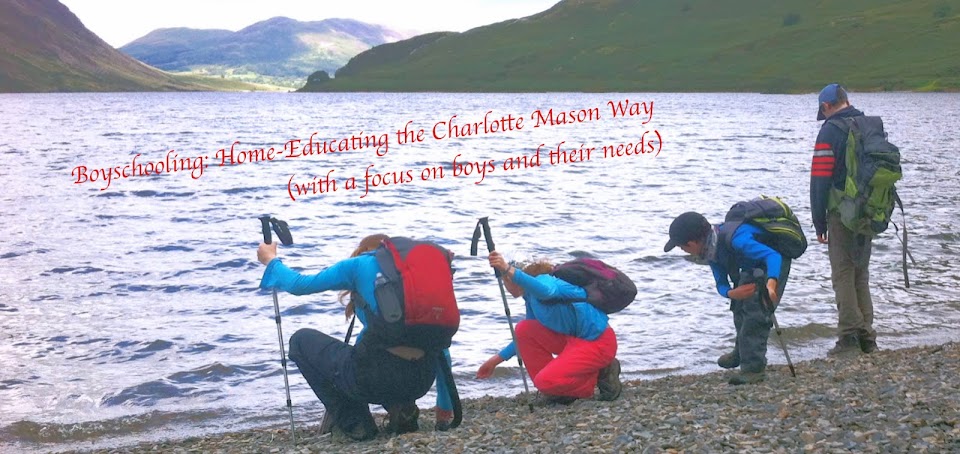Be sure to pop over to 7 Sisters Homeschooling's "Homeschool High School podcast" for my interview with Vicki about teaching Shakespeare. It's scheduled to air on 3rd April 2018 as episode 104.
 |
| It's never too early - nor too late - to think about teen careers. |
Your website asks the question on your Career Bundles page about what to do with a child who loves everything: this describes me perfectly and I still feel adrift sometimes, so what advice would you have given “younger me”?
I know, right?! Some teens DO love everything, and what’s “worse”…they are good at just about everything. It is so much harder for those teens to feel settled in one career. That’s why providing lots of role models, experiences, service and prayer is important. AND a good Career Exploration course. AND maybe a mentor or coach. AND they may end up having several college majors/degrees and careers over the years (not so unusual with millennials- careers for them are a journey, not a destination!). I wouldn’t be surprised by the multi-career experience- God gave them much to do!
What part does faith play in career exploration?
A LOT! It is so good for teens and parents to know that they can roll their work on the Lord and he’ll direct them. Teens who are familiar with God’s character and leading through their experiences with prayer, Scripture knowledge and watching Godly role models and mentors generally are much more at peace with the Career Exploration process.
Follow up to that: How can you follow a faith-based exploration with a teen who’s not a believer?
For teens who are not believers, it’s not too useful to preach at them. On the other hand, allowing them to have the experience of learning from mentors and role models can take them a long way.
Is it easier to coach someone else (ie, other students) on their vocational goals than it is to guide your own children?
Well, to be honest, I might have enjoyed watching the process than a couple of my kids liked going through the process. I just LOVE the process of self-discovery…when you see the lightbulb turn on in a teen’s brain: “I UNDERSTAND the way God made me!”
But for a lot of kids, it’s a scary process. It is hard for them to believe that they are unique and loved and created on purpose for purpose by God. They might know it theologically, but it is hard to believe it for themselves. I’ve just been around long enough to know that, whether it is my teen or someone else’s teen, God’s got things in mind for them!
Should students go to college even if their vocational goal doesn’t require a degree?
The answer to that question is a conditional “no”. (Does that sound like equivocation?)
There are teens who are absolutely not called to go to college, whether this is due to ability or attitude or interest. For those teens, vocational training is perfect! Vocational training can occur through trade schools, community colleges, apprenticeships, military or other options.
However, there are more and more jobs that require certification or college degree of some kind in order to be able to advance. It is good to go to CareerOneStop.org and read the job descriptions to find out more about careers of interest and the training required.
Somewhat related to the previous question: How much do you think vocational goals need to dictate what one studies or even majors in for their college degree, if they’re going to college?
That’s an interesting question! There are a number of careers that require a bachelors degree but it can be in just about any field. What some career fields are finding out is that young professionals who have a strong Liberal Arts background have better thinking skills, communication skills and other soft skills that help create an atmosphere for success. (Liberal Arts schools require courses in literature, philosophy, mathematics, and social and physical sciences.) I’ve heard this most often from the corporate and technology world.
Thinking about it that way, a good degree with good internships from a Liberal Arts college may be a great open door for being hired or climbing the career ladder. So the answer to the question: Sometimes it is not the major that is important, it’s the Liberal Arts training that’s important.
Is there any mileage at all in advising girls differently from boys - I know on the one hand that I should think “no way - everyone should have equal chance”, but if we believe and hope that our daughters will become wives and mothers some day, and stay home with the kids (and homeschool them!), then do we really want them to spend ten years and $$$$$$ to become a doctor, only to leave it all for nurturing the next generation?
That’s a difficult question! Is education ever wasted? Is networking ever wasted? Is enriched life experience ever wasted?
To look at it another way: I personally know a couple of families that did not allow their college-capable girls to go to college because they wanted the girls to stay home, settle down and become wives and mothers. The only difficulty was that to be a wife and mother required a marriage, which required a healthy, willing and Godly young man. These families lived in small towns with small churches and no available males. Hard to achieve the goal if one of the necessities is missing.
On the other hand, I’ve known families whose daughters did not want to go to college but instead spend some years in missions, service or the military. All of these daughters had a few years of service and adventure, got “education” by living life- and met their future husbands as they were serving.
Many thanks to Vicki for taking the time to answer all my probing questions. If you want to avail yourself of Vicki's wisdom for your own child, then why not look at her careers curriculum that's available as an ebook on 7 Sisters Homeschooling: https://7sistershomeschool.com/products-page/career-exploration-for-high-school/
















































